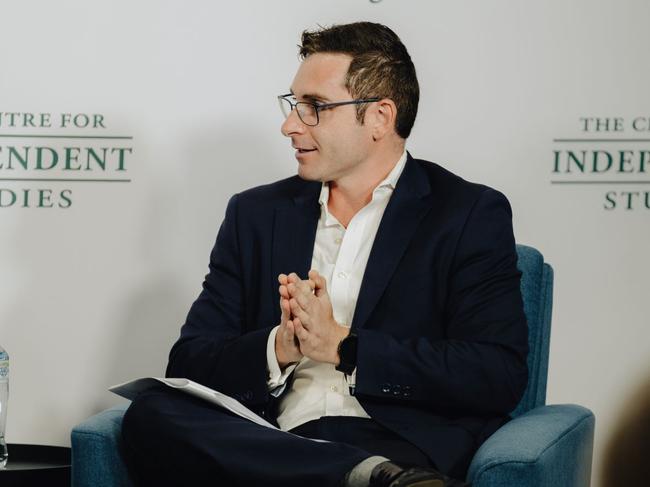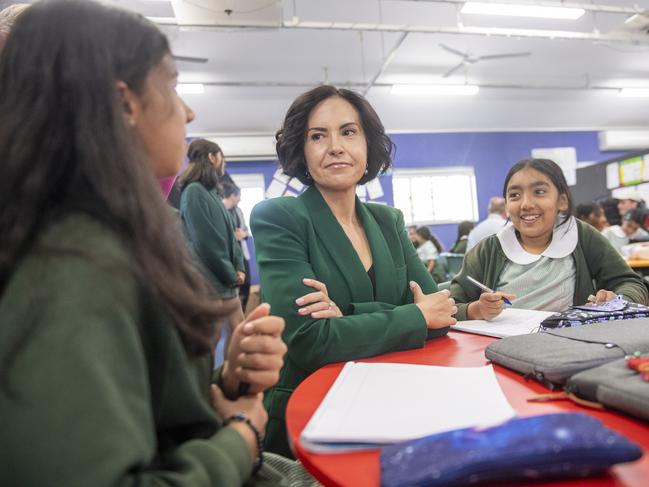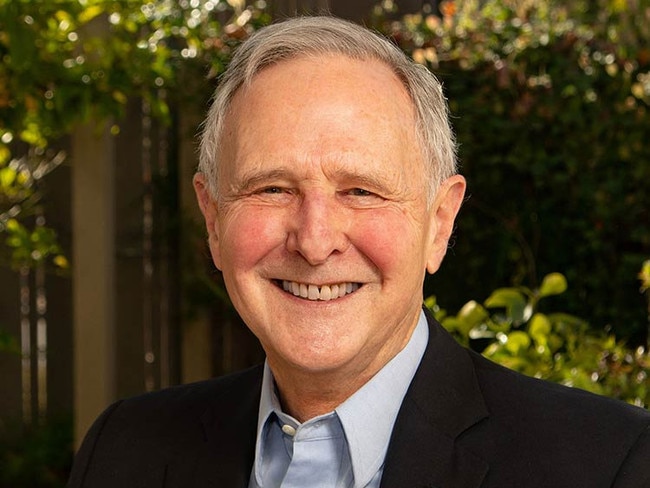NSW teachers’ nine per cent pay deal won’t help failing students, experts warn
Experts have given their verdict on whether higher pay for NSW teachers will lead to better results, as it’s revealed how their new pay compares globally.
Education
Don't miss out on the headlines from Education. Followed categories will be added to My News.
Massive pay rises for NSW school teachers should have been tied to better quality of teaching and educational outcomes for the thousands of kids failing to meet academic standards, experts have warned.
In a three-year deal struck between the teachers’ union and the Minns government, from October 2026 new teachers will be earning $92,882 a year plus $11,145 in superannuation, while the longest-serving teachers will be paid $133,422.
Australia already pays teachers significantly more than the OECD average, with minimum starting salaries the eighth highest behind Luxembourg, Germany, Switzerland, Denmark, Austria, Spain and the Netherlands.
Centre for Independent Studies education director Glenn Fahey said there is “little evidence” that increasing beginning teachers’ pay attracts more people to the profession, and raised concerns that cuts elsewhere in the Department of Education could be materially detrimental to students.
“Education graduates already earn a high salary on completion – competitive with lawyers, accountants, and engineers,” he said.
“There are many competing priorities for public investment (and) more pay for teachers – in a fixed budget environment – translates to fewer teachers and fewer other resources to support students and schools.”

Meanwhile, international assessments have shown Australian students are performing below their peers in other Western nations, ranking 17th in the world in mathematics in the OECD’s 2022 Programme for International Student Assessment (PISA) out of the 81 countries, 12th in reading, and 10th in science.
It puts Australian 15-year-olds behind Canada, Ireland, Estonia, China, Hong Kong and Japan, and up to four years academically behind the same age group in top-performing nation Singapore.

Mr Fahey said the Department’s money would be better spent improving professional pathways into teaching by introducing flexible pay for career changers and “rewarding excellence” in education.
“Rather than the current approach of high across-the-board salary increases, a smarter approach is to provide significant bonuses for teachers with a track record of strong outcomes for their students,” he said.
“The investment in education is among the most important that any country makes. But what’s clear from recent decades is that we haven’t invested wisely.”
Respected US education economist Eric Hanushek agreed blanket pay rises will not improve teachers’ effectiveness in the classroom, nor will it translate into better school results.

“If it is just a pay raise with no other conditions, you are unlikely to see any gains in student performance, at least for the foreseeable future,” he said.
In a 2020 paper Mr Hanushek argued for “significantly enhanced salaries accompanied by a tilt in compensation toward the more effective teachers” in the United States, and said the same applies in the Australian context too.
“The research shows clearly that teacher performance does not get better after the first few years of teaching,” he said.
“Thus, pay for experience means that teacher pay is not very much related to effectiveness in the classroom.”
“Poor teachers like more money as much as good teachers,” he said.
“Most teachers today are doing the best that they can. Paying them more might make teachers happier, but it will not get better performance.”





